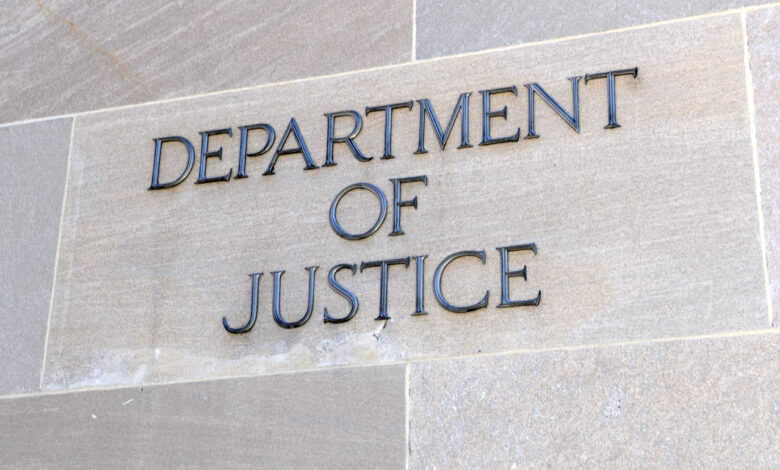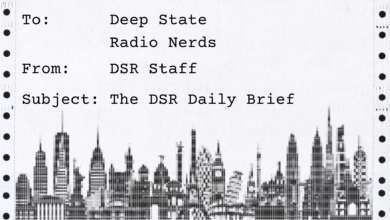THE GARLAND CONUNDRUM
Merrick Garland may or may not be the right man for the job. The problem is if he is not, we may not know until it is too late.

“Merrick Garland is the wrong man for the job.”
It’s a view I have heard often on recent trips to Washington, DC. It is a view that comes from many people with deep respect for Garland’s career in the judiciary. But it is also a view coming from some of the folks working in or with the Department of Justice today.
Often, the critique of Garland begins with comments about his management style. I’ve been told over and over again that he runs the department like a judge running his chambers. What this means is that he has surrounded himself with a small group of trusted aides (analogous to clerks serving in a court) with whom he works closely. The rest of the department is therefore at arm’s length. Some senior officials have felt or still feel that they are not being heard or that they do not have the influence on outcomes they expected to have.
Others are critical of Garland’s deep-seated “institutionalism.” This is a critique that arose earlier this year when he, for example, chose to defend presidential prerogatives over doing what many saw as just or right in the case of journalist E. Jean Carroll’s lawsuit against Donald Trump. Carroll said Trump defamed her in his effort to deny her charge that prior to becoming president he had raped her. The Trump defense was that in saying what he did he was acting in his official capacity and therefore, by law, could not be charged with defamation. Garland’s DoJ came in on the side of Trump ostensibly in defense of protecting “the presidency.” But of course, there is a legitimate argument about whether a statement in defense of a rape accusation regarding an alleged crime that took place prior to his becoming president falls into the category of protected “official” speech. Certainly, what Trump did was despicable. Why DoJ chose to weigh in as it did helped trigger this controversy about the Attorney General’s priorities.
Further, there is a concern that Garland is so concerned about appearing political that he is failing to seek accountability for the crimes of Trump and those around him as aggressively as he should. Defenders of Garland argue that we do not know what he is pursuing, that we have learned of grand juries investigating crimes related to Trump’s campaign to overturn the 2020 election in recent days and that the mere fact that we did not know of them before argues that much is percolating behind the scenes and that we should be patient. They argue that hearing nothing is a sign things are working as they should.
But of course, it could be a sign that nothing is happening. Or the silence could be a veil behind which inadequate measures are being taken. And the problem is that we will not know which it is until, perhaps, it is too late.
So, it is only natural given that the stakes are the survival of American democracy, that observers of the Department of Justice spend a lot of time reading tea leaves. One of the critical clues is who Garland is. Another is the frustrations of some of those working with him are having with his approach to work. Another is that some of the cases against Trump do not seem to require the lengthy investigations that Garland defenders argue are necessary when charging a former president. Notable among these are the cases of obstruction of justice outlined in great detail by Robert Mueller and his team. There are only a few months left within which to prosecute those charges and so far there is no sign of any action in that direction.
Not to act on the Mueller charges would be a miscarriage of justice. Similarly, failure to prosecute Trump and those around him for both illegally conspiring to try to overturn the 2020 election results and for the coup attempt on January 6th would be disastrous for U.S. democracy. While there is some indication that some grand juries are hearing cases associated with elements of this, we have plenty of evidence that the efforts to interfere with the election and to coordinate the attack on the Capitol were coordinated with the White House.
Right now, the burden of investigation and most of the revelations regarding the January 6th attack seem to be emanating from the January 6th Commission in the House of Representatives. While their efforts are welcome, they do not have the ability to prosecute…that will require action by DOJ. Also, some of what they have revealed to date should warrant independent investigations by Justice, perhaps even the appointment of a special counsel to look into them in an independent way. (Much like the Durham investigation which Garland has chosen to continue to fund. Accept of course, these charges are important and there is much evidence to support them and the Durham investigation is a political hit job cooked up by the Trump Administration as it was departing.)
The concern of many is that Garland’s efforts to appear non-partisan will have him bend over backwards to let a dubious enterprise like the Durham investigation continue while at the same time bend over backwards in the opposite direction to differentiate himself from the clear politically motivated hackery of his immediate predecessor in the job Bill Barr. The instinct is commendable just as Garland’s character is above reproach.
There are just two problems with the approach. One is that the crimes in question were committed by a political party and were the brainchild of the head of that party, who happened to be the president. Failing to pursue them would create a new kind of immunity that would give political parties license to abuse our system even worse than they have done so far. Further, failing to pursue them because a former president is involved…or granting him too much deference…would further ensconce the idea that the president of the United States is above the law. (Also: The clock is ticking. If the GOP wins the House in 2020, the January 6th investigation will be unceremoniously and immediately killed.)
Which brings us to the second level of problems. What is at stake is not what is usually encountered even in while doing the weighty day-to-day business of the Department of Justice. What is at stake is the future of our democracy. Trump and the GOP have demonstrated a willingness to ignore or twist the law to pursue their goals. They have made it clear that should they get their way there will never be a fair election in the US again. They are an existential threat to our system of government. And so, while any case against them must be watertight and seen as absolutely fair and fact-based, the case(s) must be made. Failing to address them out of deference to tradition or institutional priorities would be a travesty.
Given the stakes, it is no wonder that the scrutiny of Garland is as it is. Given that we can’t know what is happening in secret until it is revealed, it is certain that scrutiny will continue. And given that we may not know what is done or not done until it is too late, it is natural that anxiety levels are high.
We are nearing the one year anniversary of the January 6th attacks. We’re less than a year away from the next election. The time for Garland to give some indication as to whether or not he was actually the right man for the job is sooner rather than later. And I will admit, it is disturbing to me that so many folks I know who are close to the Department of Justice, are worried.

